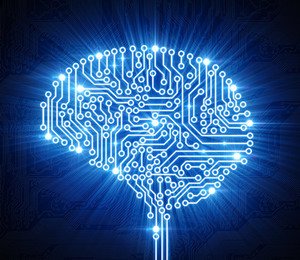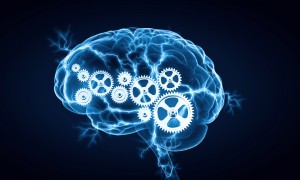Cognitive Science

This track allows students to focus on knowledge and skills related to how technology is relevant to scientific investigation in the field of cognitive science.
Course options with computational/digital focus:
CDT 23100 Learning, Design & Technology (ESS 23100 ) taught by G. Alex Ambrose (SPRING)
Technology has always been used for learning from the chalkboard in the oneroom school to video lectures in massive open online courses. Regardless of time or place, the design of effective and innovative learning technologies must be grounded in research based evidence reflecting what is known about how people learn. Incorporating design, research, and fieldbased perspectives, students will be tasked with investigating current/emergent learning technologies and theories across a range of applied contexts in education, business, nonprofit, and government. This hybrid course involves an experiential/communitybased learning component requiring students to devote one weekly two hour block of time to service in the local community. One facetoface class meeting per week will be substituted with asynchronous interactions (i.e., online discussions and video lectures), independent/group studio time, and/or meetings with a community partner. No background in education or technology required. Course Goals: *Evaluate learning theories in terms of applicability to a technologicallyenhanced learning environment. *Apply technologies to real world problems in terms of potential impact on learning *Explore the ethical, professional, and social challenges and controversies related to learning technologies (i.e., minors, privacy) *Integrate experiential and community based learning through the learning technology applications related to the coursework.
CDT 40510 Artificial Intelligence (PSY 40675/CSE 40171) taught by Sidney D'Mello (NOT OFFERED AT THIS TIME)
A broad overview of the field of Artificial Intelligence (AI), including its historical and philosophical foundations, classical and contemporary approaches, cognitive systems, and recent trends and applications. Topics include traditional AI techniques (e.g., searching, problem solving, knowledge representation and reasoning, planning, constraint satisfaction, decision making), probabilistic and network based approaches (e.g., Bayesian models, neural networks), computational models of cognition (e.g., models of perception, action, memory, cognitive architectures), and recent developments in natural language processing, speech recognition, robotics, human-computer interaction, machine learning, and computational emotions.
CDT 30140 Human Computer Interaction (PSY 40676/CSE 40424) taught by Sidney D'Mello(FALL & SPRING)
An in-depth coverage of the field of Human-Computer Interaction (HCI) including its history, goals, principles, methodologies, successes, failures, open problems, and emerging areas. Topics include the fundamental principles of HCI (e.g., consistency, compatibility, pictorial realism), models of the human (e.g., perception, attention, memory, learning), interaction modalities and paradigms (e.g., windowing systems, haptic interactions), best-practice design principles (e.g., user-centered design, universal design, rapid application development), techniques to evaluate interfaces and interactions (e.g., observational methods, think-aloud protocols, cognitive walk throughs), and emerging topics in HCI (e.g., affective computing, augmented cognition, social computing, ubiquitous computing).
CDT 31145 Human Factors of Computer Systems (NOT OFFERED AT THIS TIME)
You will engage in an in-depth exploration of the field of Human-Computer Interaction (HCI) including its history, goals, principles, methodologies, successes, failures, open problems, and emerging areas. Broad topics include theories of interaction (e.g., conceptual models, stages of execution, error analysis, constraints, memory by affordances), design methods (e.g., user-centered design, task analysis, prototyping tools), visual design principles (e.g., visual communication, digital typography, color, motion), evaluation techniques (e.g., heuristic evaluations, model-based evaluations), and emerging topics (e.g., affective computing, natural user interfaces).
Course options without computational/digital focus (only one is allowed):
CDT 30510 Introduction to Cognitive Neuroscience (PSY 30520) taught by Jessica Payne (FALL)
This is a survey course that introduces students to the biological substrates underlying various forms of cognition in humans, with a specific focus on mental processes. We will explore how psychological and cognitive functions are produced by the brain. Cognitive neuroscience is a branch of both psychology and neuroscience, drawing from disciplines such as biological psychology (biopsychology), neuroscience, cognitive psychology, and neuropsychology. We will cover a broad range of topics, including learning and memory, perception, development and neural plasticity, cerebral lateralization and language, emotions and social cognition, stress, sleep and dreaming, and consciousness. No previous coursework in neuroscience is required, but at least some experience with biology or biopsychology is preferred.
CDT 30530 Man and Machine: Humanity, Technology, and the Future taught by Jessica Baron (FALL)
Rapidly advancing technology and sociotechnical systems promise enormous rewards, but also present great risks to the future of humanity by creating a variety of social, cultural, environmental, economic, religious, and political conundrums. In this course, students will be presented with some of the most controversial ethical dilemmas and policy issues in science and technology today and will learn about a variety of theoretical perspectives from which to analyze them. Our goal is to learn how to respond knowledgeably and productively to the sociotechnical dilemmas that confront us in government, industry, politics, education, and daily life. Because these issues cut across the conventional lines of academic training and thought, we will take a crossdisciplinary approach to studying the past, present, and future of technological innovation and the responsibilities of both the designers and users. Examples will include life extension technology, robotics, predictive policing, human enhancement, reproductive interventions, AI, cyber security, and other projects currently in development around the world.
CDT 40530 Digital Technology, Society, and Ethics (STV 20235) taught by Edward Jurkowitz (NOT OFFERED AT THIS TIME)
This course will explore ethical and moral dilemmas that arise as powerful and pervasive new technologies increasingly shape how individuals understand themselves, and play important roles in weaving together new kinds of social groups. We will examine how new technological capacities have helped shape new kinds of economic organization and production (information economy), new forms of community (dispersed, virtual), and led people to new understandings of individuality and of themselves (e.g., online communities as constitutive of new self-definitions and understandings). We will work through case studies to investigate how particular new communication technologies have changed how society is organized, and changed how individuals interact with one another. We will explore ethical questions in the context of these case studies, and will ask ourselves how people can and should treat and engage one another in a rapidly transforming technical and social landscape. We will grapple with understanding information technologies as both shaping and reflecting the communities and societies in which they exist; and we will consider whether the question of how one should/can engage another person may be decided by, or embedded in the technical structure of new social media and other technical systems. We will explore how our interactions with the physical world are increasingly mediated by technologies (from games to Google Glass), and think about how the 'natural' and the 'artificial' are merging together, possibly transforming what it means to be human, or to be a nation. In short, we will explore how communication systems shape societies: how social, economic, political, and cultural life is transformed as new technologies enable new modes of mediated social interaction. In a rapidly transforming world, this course will lead students to understand themselves as, and be, active, ethical contributors, capable of shaping communities of various kinds: business, social, cultural, and other.
CDT 43510 Philosophy of Mind (Phil 43901) taught by various faculty in the Philosophy Department (NOT OFFERED AT THIS TIME)
What are mental phenomena? What is their place in the world? Are they identical with physical phenomena? Are they distinct from physical phenomena, yet dependent on them in some form? Or are the two classes of phenomena entirely independent of each other. Are there causal relations between mental and physical phenomena? And if so, what must the nature of mental and physical phenomena be to allow for this possibility? Is there a principled distinction between experiential and representational phenomena? Or is this a merely superficial distinction? These are some of the big questions that arise when we ask what the nature of mind is, when we raise questions about the metaphysics of Mind.

CDT 43520 Natural Language Semantics (PHIL 43916) taught by Jeffrey Speaks (NOT OFFERED AT THIS TIME)
One of the most remarkable facts about natural languages, like English, is that speakers of the language are able to understand sentences which they have never before encountered. Many have thought that this is best explained by the fact that the meanings of sentences are determined by the meanings of the expressions of which they are composed, along with the way in which those expressions are combined. To a first approximation, the project of constructing a compositional semantic theory for a natural language is the project of explaining how the meanings of sentences of that language are determined by the meanings of sub-sententential expressions, plus the way in which those expressions are combined to form the sentence. The task of constructing such a theory has been a central focus of linguistics and the philosophy of language. This course will be an introduction to natural language semantics.
CDT 30520 Introduction to Biopsychology (PSY 30501) taught by Michelle Wirth (FALL)
The brain gives rise to all thoughts, feelings, learning- much of what we study in the field of psychology. In this course, you will learn the basics of how the brain works. Topics covered will include: how neurons transmit signals; basic neuroanatomy (functions of different parts of the brain); the neural basis of sensory processes, such as vision, hearing, smell and taste; movement and autonomic functions; motivations, such as hunger and thirst; emotions and stress; and cognitive functions such as learning, memory, and language. Examples and evidence will come from studies of brain-damaged human patients as well as animal neuroscience research. The evolution of the human brain and comparison to other species' brains will also be considered.Prerequisites: Introductory psychology. Some biology coursework will also be helpful, but not required.
I just up vote you follow me and visit my blog
Congratulations @umair000! You received a personal award!
Happy Birthday! - You are on the Steem blockchain for 1 year!
Click here to view your Board
Congratulations @umair000! You received a personal award!
You can view your badges on your Steem Board and compare to others on the Steem Ranking
Vote for @Steemitboard as a witness to get one more award and increased upvotes!
Congratulations @umair000! You received a personal award!
You can view your badges on your Steem Board and compare to others on the Steem Ranking
Do not miss the last post from @steemitboard:
Vote for @Steemitboard as a witness to get one more award and increased upvotes!